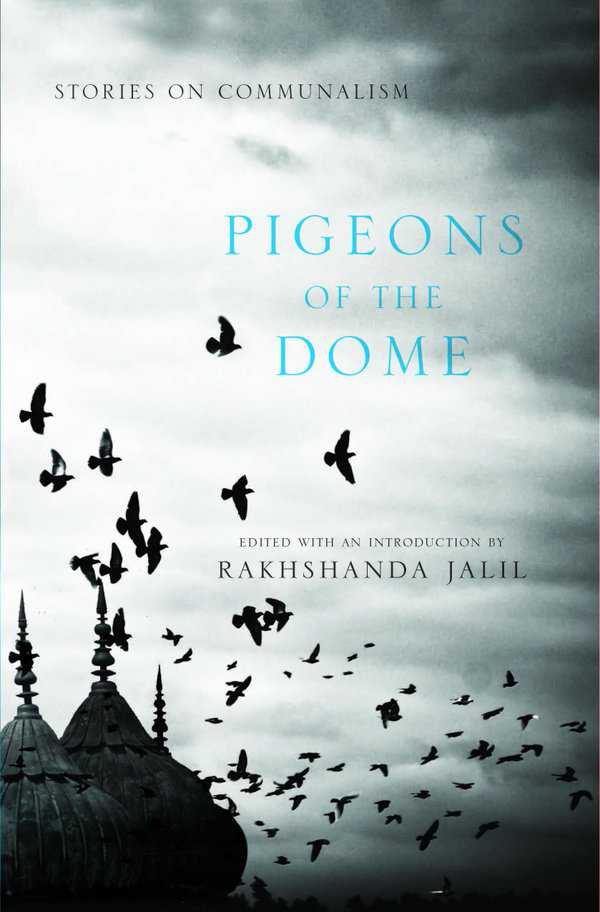
The Pigeons of the Domes Ed. by Rakshanda Jalil. Niyogi Books. Pages 284. Rs 450
Jayanti Roy
The bygone year has gone down in the history of India for trending ‘intolerance.’ It made Indians rethink about acceptance of the ‘other’. Well-known author, Rakshanda Jalil, has embarked on putting together an anthology of stories on communalism. The phrase strikes you immediately — on communalism? Why not on secularism? The editor justifies her decision by saying that she looked for stories on the ‘dark twin of secularism — communalism’ because we cannot understand the first without understanding the other, and the communal stories have not been explored since the Partition days. However, can secularism and communalism be separated and put in compartments? Isn’t the story on communalism, in fact, a story of secularism itself? Perhaps, the editor wants to show that even when she has picked up stories which are dark, gloomy, murky and morbid, they have the power to touch your heart with ominous fingers, thereby questioning your ethics and ethos.
Each of the 19 stories shines brightly in its own luminescence, making the anthology a rich kaleidoscope of different flavours. All the stories, but one (which was originally written in English), have been translated from Urdu, Hindi and Punjabi by 10 established translators. The authors are well known too, with names like Gulzar, Keki N. Daruwalla, Ajeet Cour and Jeelani Bano featuring in the list. The first story, Fear (Khauf) by Gulzar is a classic, with its Somerset Maughm like twist in the end. Other stories — some direct, some subtle, some beautifully layered and nuanced, some overt and some metaphorical talk of alienation, helplessness, despair, angst, yearnings and aspirations of charaters.
Flowers of Mustard (Sarson ke Phool) by MK Mahtab is one such small nugget which fills the heart with halcyon feelings of optimism and well-being. The Culprit (Mujrim) by Jeelani Bano portrays how mutual distrust takes away sanity of all the involved parties. Each story goads the reader to think about their own biases, actions and reactions, beliefs, prejudices, wisdom and myths that we all cosset but refuse to acknowledge, openly or even secretly. The editor has wisely picked the stories — each is sharp, possesses aesthetic value and is a good piece of writing.
There are plots concerning Hindu, Muslim, Sikh, Parsi, Punjabi and Kashmiri identities. However, when this fact is advertised on the blurb, it seems like a forced attempt to put in different elements from across the Indian diversity.
The translations of most of the stories flow smoothly. In a volume created with much thought and concern, one feels sad to find even minor careless lapses.
The editor has composed a glossary at the end of the book, explaining meanings of Hindi and Urdu words cited inside the text and italicised for identification. However, the list is not exhaustive and words have been picked or left out on whims. Usually the introduction of an anthology underlines the spirit of the collection or enlightens the reader regarding the unifying thread running through all the contributions or tells interesting stories of the background of each story. Here, the editor has discussed each story in detail, even has quoted from these, which robs the reader of the subsequent mystery. After reading the introduction, my enthusiasm to go through the volume suffered too.
Read the book for getting a very indigenous feel of what it means to be an Indian, clothed in layers of conflicting identities or as the editor says, ‘…where secularism does not mean the absence of religion; rather it means accepting the “other” and according it acknowledgement and space in most cases, if not respect and tolerance.’



























